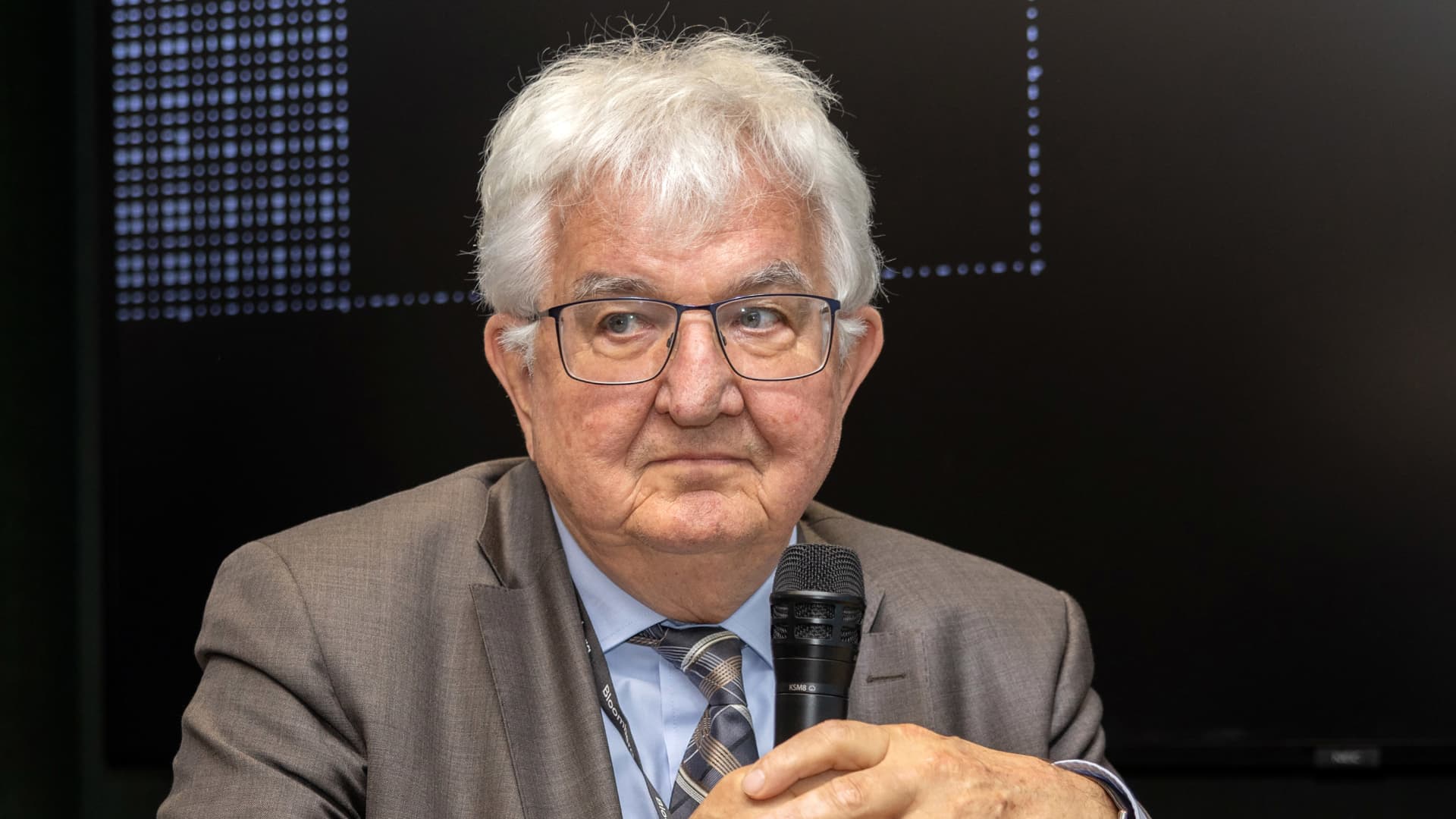Robert Holzmann, governor of Austria’s central bank, speaks during an event in Vienna, Austria, on Tuesday, Sept. 26, 2023.
Bloomberg | Bloomberg | Getty Images
Tensions in the Middle East pose the biggest threat to a prospective interest rate cut from the European Central Bank, according to ECB policymaker Robert Holzmann.
“At this stage, I think the biggest threat is geopolitics, because we have seen what’s happened in the Middle East,” Austrian central bank governor Holzmann told CNBC’s Karen Tso on Wednesday on the sidelines of the International Monetary Fund Spring Meetings.
“As you can imagine, only when a boat is sunk in the [Strait] of Hormuz and you may have a different oil price, and this of course may require us to rethink our strategy,” he added.
His comments echo the view of ECB policymaker Olli Rehn, who on Tuesday said the likelihood for a June rate cut hinged upon inflation falling as expected, noting that the biggest risks to monetary policy stem from Iran-Israel tensions and the Russia-Ukraine war.
“The biggest risks stem from geopolitics, both the deteriorating situation in Ukraine and the possible escalation of the Middle East conflict, with all their ramifications,” Rehn, who serves as the governor of the Bank of Finland, said in a statement. “As summer approaches we can start reducing the level of restriction in monetary policy, provided that inflation continues to fall as projected.”
Holzmann is widely considered to be one of the most conservative members of the ECB’s main decision-making body and has warned it is safer not to rush interest rate cuts. He recently told Reuters that the ECB could moderate rates in June, indicating a growing consensus for a near-term move.
ECB President Christine Lagarde on Tuesday said the central bank was closing in on a rate reduction, barring any major surprises.
“We are observing a disinflationary process that is moving according to our expectations,” Lagarde told CNBC’s Sara Eisen.
“We just need to build a bit more confidence in this disinflationary process but if it moves according to our expectations, if we don’t have a major shock in development, we are heading towards a moment where we have to moderate the restrictive monetary policy,” Lagarde said.
In the absence of a shock, Lagarde said it would be time for the central bank to trim rates “in relatively short order,” without providing any further details.
Policymakers and economists have zeroed in on June as the month when rates could start to be reduced.
The ECB on Thursday left its policy unchanged for the fifth consecutive meeting, but signaled that cooling inflation means the institution could soon start to moderate rates.
In a shift from previous language, the ECB said “it would be appropriate” to lower its 4% deposit rate if underlying price pressures and the impact of previous rate hikes were to boost confidence that inflation is falling back toward its 2% target “in a sustained manner.”
Speculation that the ECB could soon start cutting rates comes even as investors have slashed their bets on Federal Reserve rate reductions. Traders now ascribe a roughly 20% likelihood of a Fed rate cut in June, after yet another inflation print showed consumer prices remain sticky.
— CNBC’s Jenni Reid contributed to this report.







